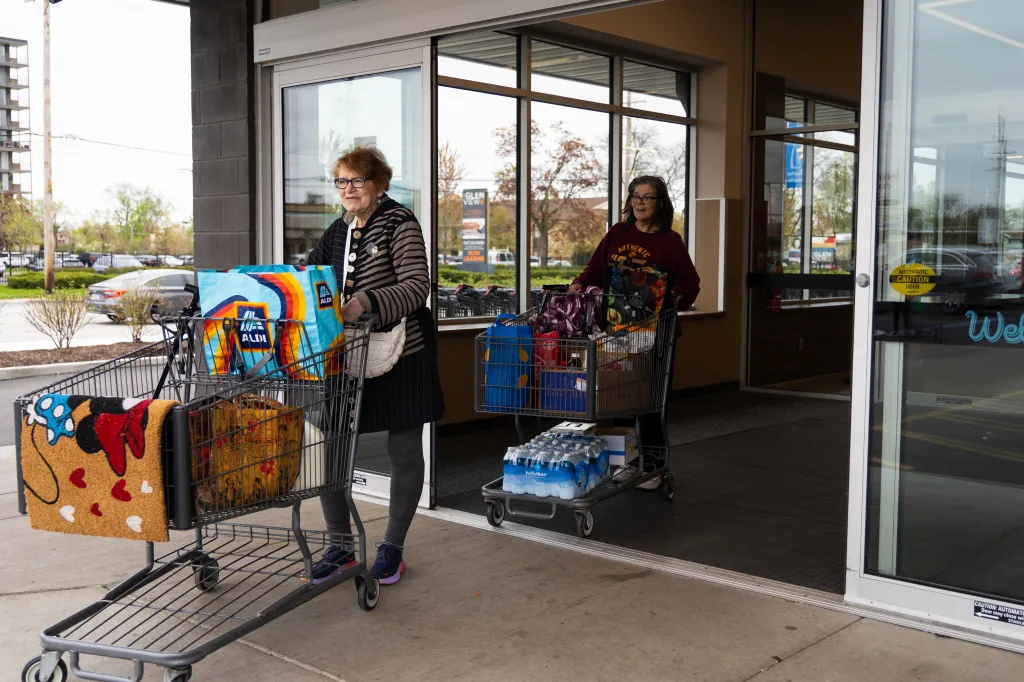
Grocery bills have become one of the most painful reminders of inflation for American families. That’s why we were approving of Gov. JB Pritzker’s announcement last year that Illinois’ statewide grocery tax will expire in 2026.
But as the new year approaches, local government officials — whose budgets stand to take a hit, since state grocery tax revenue flows to local coffers — have taken the opportunity to implement their own local version.
So far, 539 municipalities have adopted local grocery taxes, according to the Illinois Municipal League.
That means around a half of the state will never experience the relief Pritzker touted.
We’ve supported an end to this regressive tax, even as we understand that some municipalities stand to lose a significant chunk of revenue they’re counting on to balance the books. We get why some have made a difficult decision.
But that’s also why we took notice when downstate Mayor Matt Wigginton of Peoria Heights on Tuesday vetoed an ordinance implementing a local grocery tax in his village, which trustees passed earlier this month. His story — and that of his village — is worth recounting.
Peoria Heights, a village of just under 6,000 residents, is a suburb of Peoria in central Illinois. Wigginton, who served as a trustee for four years, is brand new to the role of mayor, having been sworn in May 6.
He campaigned on a promise to reject a local grocery tax in town. It’s refreshing to see a politician make good on such a commitment.
Wigginton said the village stood to lose $125,000 to $138,000 in revenue, but much of that loss was a foregone conclusion — Peoria Heights’ primary grocer, Save A Lot, is leaving town. With residents already fearful of becoming a food desert, Wigginton wisely decided taxing smaller retailers such as gas stations or the local butcher would hardly fill the gap. Why not make his village stand out instead?
Smart move. Wigginton said he’s been actively pursuing new grocers to come to town.
“I need a willing dance partner,” he told us. “If I can have a competitive advantage, I think that’s a win.”
The village’s lack of a grocery tax and its apparent financial stability certainly should give business owners reason to consider making Peoria Heights home.
That wasn’t the case in the recent past. Wigginton shared that just eight years ago, Peoria Heights was wondering how to make payroll. There weren’t many options to fix that problem, given less than 5 cents of every property tax dollar goes to the village, and most of that goes to pension obligations. But by holding the line on personnel costs, the village got back on solid footing.
“We have about an $8 million surplus — for a village that runs about a $6 million budget, that’s pretty good,” Wigginton said.
Wigginton isn’t alone — up north, Evanston Mayor Daniel Biss, who has announced a run to represent Illinois’ 9th District in the U.S. House of Representatives, has vowed to veto a grocery tax in his city after the City Council voted to adopt one on Monday. The council appears to have the supermajority support required to override a mayoral veto, making it likely Evanston residents will soon be saddled with this local levy over their mayor’s objection.
Peoria Heights folks won’t suffer the same fate. Not immediately, at least. Even if they wanted to override Wigginton’s veto, the next board meeting isn’t until Oct. 7 — six days after the deadline for municipalities to submit a local grocery tax ordinance to the state, meaning any decision to add the tax wouldn’t be implemented until July.
“We have lived without the grocery tax before. Gov. Pritzker, during COVID, did a moratorium on the grocery tax for a year, and not only did Peoria Heights survive, we thrived,” he said.
Wigginton told the editorial board that he offered up a compromise to the board of trustees: putting the tax question to Peoria Heights residents via referendum to let the people decide whether they want a grocery tax.
Hundreds of Illinois towns are adding to the burden at the checkout line. Peoria Heights is proving that saying no is possible — and even wise. Let’s hope some grocery entrepreneurs are reading this editorial.



